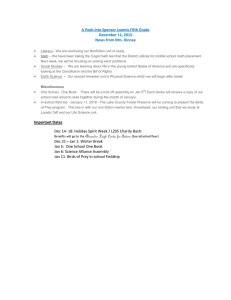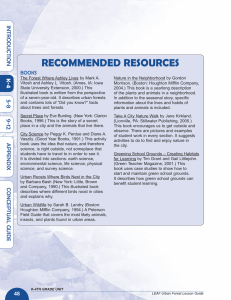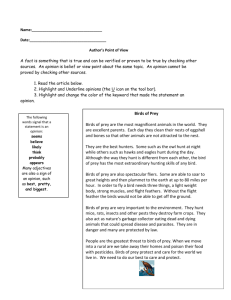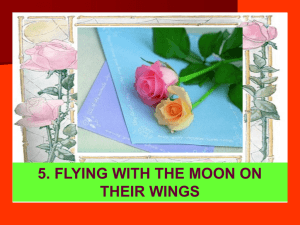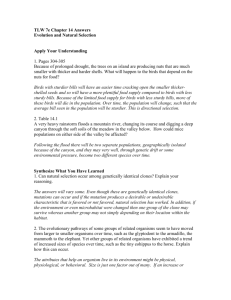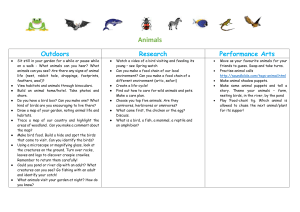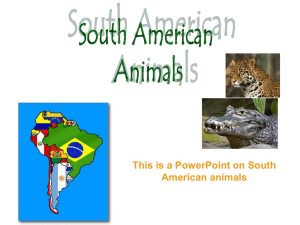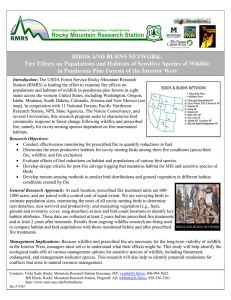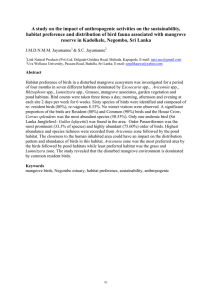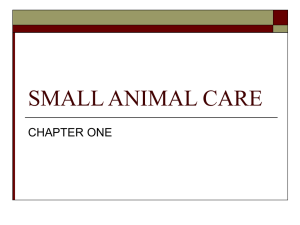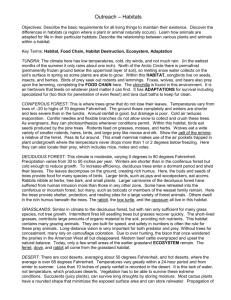Term 4 - All Saints` and St Richard`s
advertisement
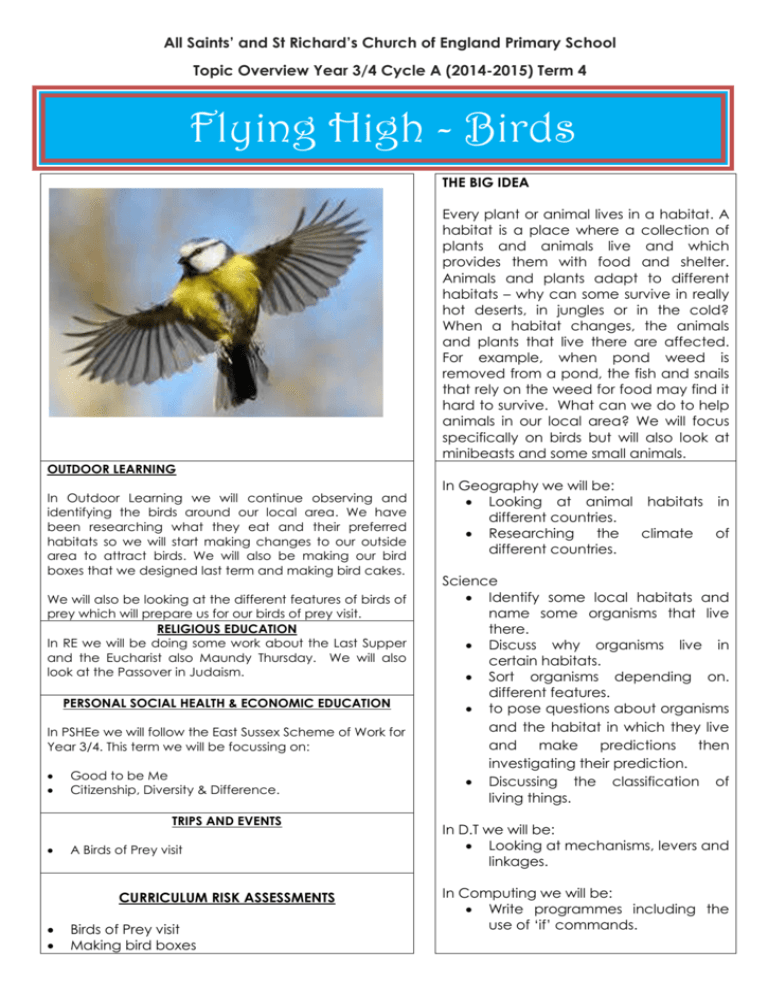
All Saints’ and St Richard’s Church of England Primary School Topic Overview Year 3/4 Cycle A (2014-2015) Term 4 Flying High - Birds THE BIG IDEA Every plant or animal lives in a habitat. A habitat is a place where a collection of plants and animals live and which provides them with food and shelter. Animals and plants adapt to different habitats – why can some survive in really hot deserts, in jungles or in the cold? When a habitat changes, the animals and plants that live there are affected. For example, when pond weed is removed from a pond, the fish and snails that rely on the weed for food may find it hard to survive. What can we do to help animals in our local area? We will focus specifically on birds but will also look at minibeasts and some small animals. 1. OUTDOOR LEARNING In Outdoor Learning we will continue observing and identifying the birds around our local area. We have been researching what they eat and their preferred habitats so we will start making changes to our outside area to attract birds. We will also be making our bird boxes that we designed last term and making bird cakes. We will also be looking at the different features of birds of prey which will prepare us for our birds of prey visit. RELIGIOUS EDUCATION In RE we will be doing some work about the Last Supper and the Eucharist also Maundy Thursday. We will also look at the Passover in Judaism. PERSONAL SOCIAL HEALTH & ECONOMIC EDUCATION In PSHEe we will follow the East Sussex Scheme of Work for Year 3/4. This term we will be focussing on: Good to be Me Citizenship, Diversity & Difference. TRIPS AND EVENTS A Birds of Prey visit CURRICULUM RISK ASSESSMENTS Birds of Prey visit Making bird boxes In Geography we will be: Looking at animal habitats in different countries. Researching the climate of different countries. Science Identify some local habitats and name some organisms that live there. Discuss why organisms live in certain habitats. Sort organisms depending on. different features. to pose questions about organisms and the habitat in which they live and make predictions then investigating their prediction. Discussing the classification of living things. In D.T we will be: Looking at mechanisms, levers and linkages. In Computing we will be: Write programmes including the use of ‘if’ commands. MATHS: Understanding the place value in numbers to 1000. Use understanding of place value to multiply/divide whole numbers by 10. Use place value to make approximations. To recall and use multiplication and division facts. Learn do divide with remainders. To recognise and compare fractions To read, write and convert time between analogue and digital 12 and 24 hour clocks. To measure to the nearest appropriate unit, choosing suitable equipment. To identify horizontal and vertical lines and pairs of perpendicular and parallel lines. Once a week the children will be focussing on applying their mathematical learning to solve problems. Netball will be taught in P.E. using the Val Sabin Scheme of Work. The children will be learning: The different passes you can use. The rules of footwork and contact. How to mark the opposite team. The rules of each position. Music is being taught by a music specialist Pitch, Singing and Composing. Throughout Year 3 /4 the children will have the opportunity to learn to play the recorder. French is being taught following the West Sussex Mixed Age scheme of work which runs over two years. This year we are following Cycle A and this term the children will be learning: ENGLISH: In Literacy planning will be supported by the ideas produced in ’Book Power’, the text type papers and the progression papers. Texts include: o Tom’s Sausage Lion The aim of the unit is: To engage children in a story with which they will empathise. To discuss the themes and issues which arise, enabling children to make connections with their own lives. To develop critical responses to the story through discussions, drama and role-play. To write in role in order to explore characters and events. In grammar and spelling there will be a focus on using capital letters and full stops correctly, use of apostrophes and spelling of plurals. Shape Parts of the body East Traditions in France. CLASS ROUTINES: HOMEWORK: The children will have weekly homework tasks linked to learning in class. The homework will be sent home on Friday and is due back in school on Wednesday. Children are expected to be heard read at least three times a week. Please make sure that you record each tie your child reads or is heard read in their homework diary. The children can then collect stickers towards their reading certificate. Spellings are sent home each week and need to be practised at home daily. Little and often is the best way to learn spellings. Children will be tested on their spellings each Tuesday. P.E. LESSONS: The children need to have their P.E. kit in school each day and it should be taken home each Friday so that it is kept clean for lessons. Jewellery must be removed so if your child has their ears pierced they will need a small pot in their bag to put their earrings in to keep them safe. Long hair should be tied back for school, but it must be tied back for P.E. lessons so a spare hair band is a good idea. COMMUNICATION: Please encourage your children to speak to me if they should have any concerns, and of course I will always be available at the end of school if you wish to speak to me directly. I will continue sending home ‘ASK me about …’ cards so that you are able to talk about the children's learning at home. Please look out for these.
